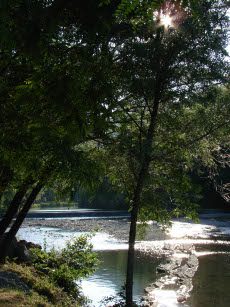Traditional Buddhism usually translates samsara as ‘round of rebirth’ and ‘perpetual wandering’ to describe the continual process of being born again, growing old, suffering, and dying. Further, this process is described as the unbroken chain of the five-fold khandhas-combinations, which constantly change from moment to moment and follow continuously one upon the other through inconceivable periods of time (Khandhas is the Pali word for aggregates, the five parts of a sentient being: body, feelings, perceptions, mind formations or thought process, and consciousness.)
This teaching or concept helps one to understand karma, which is important in understanding the continuity within samsara. One’s existence at the present time is subject to past existence(s).
Karma, the law of cause and effect, can also help us understand samsara, and understanding the compounded nature of all things assists in understanding our interdependency, interconnectedness, and oneness.
Science tells us that it all began with the “Big Bang.” With that in mind, can you trace your origination back to that event? Or even before the Big Bang? How can this conclusion parallel the “act of creation” described in the Bible and Darwin’s theory of evolution?
Is everything experiencing samsara? It is easy to witness the constant change that takes place in all things: the coming into existence, the aging or deteriorating, the dying or ceasing to remain unchanged. This is the Buddhist truth that “everything is always changing; nothing remains the same.”
In Huston Smith’s book Forgotten Truth (1976, chapter 4, The Levels of Selfhood), the author retells a Sufi story taken from Tales of the Dervishes. The story is titled The Tale of the Sands. It can be found on the Web, but Huston’s book is available in paperback at Amazon.com. I highly recommend the book and the “Tale” for insight into the meaning of samsara.

